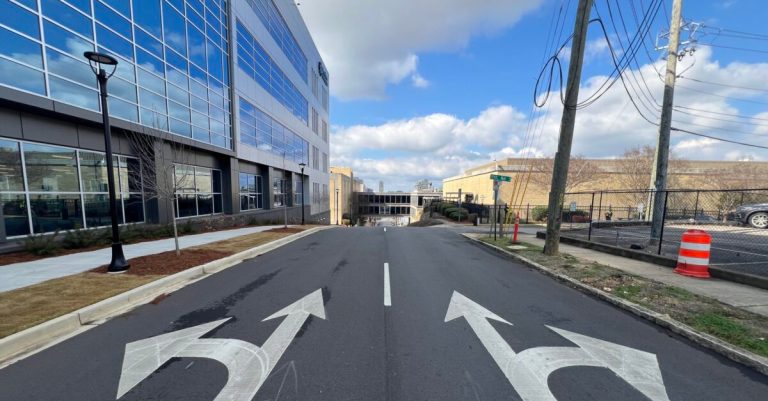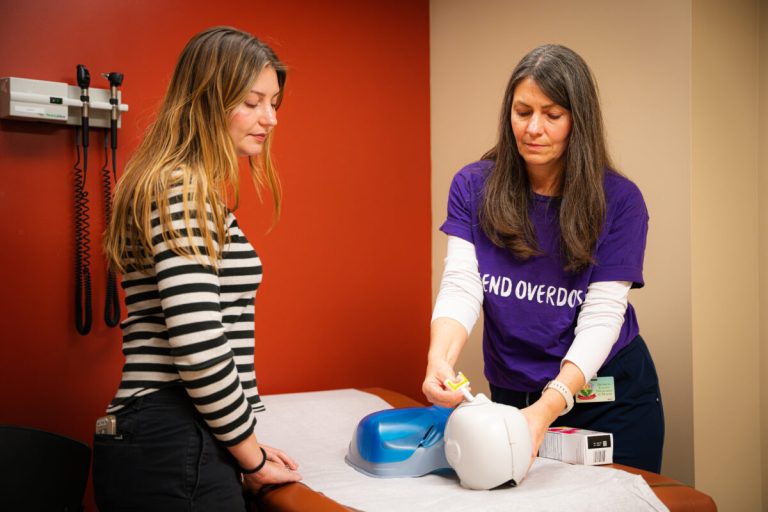11 new EcoScapes for Birmingham schools? Now that’s a great idea
Reading time: 3 minutes

For nearly 25 years Southern Environmental Center’s (SEC) Roald Hazelhoff has been the “Johnny Appleseed” of EcoScape gardens in Birmingham.
This upcoming school year may be his busiest year ever.
In response to the coronavirus pandemic, Hazelhoff’s popular Birmingham-Southern College environmental education program is proposing to design and install 11 EcoScapes on Village Creek area school campuses.
What is an EcoScape

For a generation, EcoScapes have been established throughout Birmingham on school campuses, near churches and senior homes and vacant lots. Each is unique and community oriented. They all have several elements in common. Most are filled with native and edible plants, pollinator friendly vegetation, fruit trees, herbs, local art, and educational signage.
If they can successfully secure funding, the SEC will provide these items along with on-site guidance, instruction, and continued monitoring of each school’s EcoScape Garden.
Four EcoScapes

Where are the four EcoScapes the SEC presently operate?
- Hugh Kaul EcoScape – Located on the campus of Birmingham-Southern College, the ecoscape attracts thousands of school children, college students, educators, plant enthusiasts and BSC alums.
- North Birmingham EcoScape – Dedicated in 2010, this ecoscape is located next to a Wells Fargo Bank branch on 2619 30th Avenue North.
- Sims Gardens – Spread across five adjacent lots in Homewood, the gardens are named in honor of Catherine Sims, affectionately known as the Plant Lady of Edgewood. The gardens are at 908 Highland Road in Homewood.
- Turkey Creek Nature Preserve – Discover this EcoScape near the entrance of Turkey Creek Falls. This EcoScape is the only one on a Forever Wild property.
Why Build Ecoscapes?

In a recent interview with Hazelhoff, we learned why he first started building EcoScapes.
“One of things that struck me when I came to Birmingham was the amount of vacant land. It also became very clear to me quickly that the vacant land was not contributing to the community. It was causing property values to drop and in some cases used as dumping grounds.
I thought, there has got to be something better.
My view is that if you can take something that is ugly and make it into something that is a community asset without spending a fortune, then that could be a showcase for revitalization.”

Hazelhoff also described how ecoscapes send a positive environmental message.
“All our gardens are xeriscape gardens – gardens that don’t have irrigation. We also educate the community about larger environmental issues. The BSC EcoScape has a bioswale, for example. When you have flooding it can absorb the rain and send it back into Valley Creek cleaner than when it first came on campus.”
Great Opportunity
Because of the coronavirus, educators are seeking creative ways to get their students outdoors in a fresh air learning environment.
On campus EcoScapes provide just that and more. Let’s hope Hazelhoff and the Southern Environmental Center can “plant” eleven new EcoScapes at Birmingham schools within the Village Creek watershed this fall.



